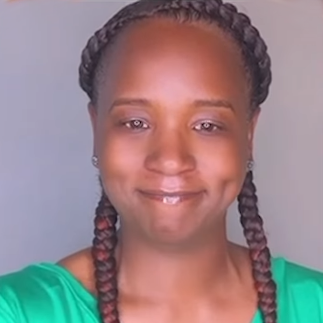
Producing Modification: The Function of Volunteers in Juvenile Justice Programs
Introduction
The juvenile School nutrition programs justice system typically operates under a cloud of misunderstanding and stigma, with numerous stopping working to recognize the potential for rehabilitation and positive change. One of the most significant forces driving this modification is the generous commitment of volunteers. These people, who generously contribute their time and abilities, play a vital function in changing the lives of youths caught in the web of juvenile justice. In this article, we will explore Creating Change: The Function of Volunteers in Juvenile Justice Programs, analyzing how offering can foster personal growth, emotional recovery, and significant modification within these vulnerable populations.
Creating Modification: The Role of Volunteers in Juvenile Justice Programs
Volunteers working in juvenile justice programs work as coaches, educators, and advocates for youth who are often overlooked by society. They offer emotional assistance, practical guidance, and support for these young individuals to take charge of their lives. By engaging with at-risk youth through various efforts-- such as mentoring programs, tutoring sessions, and life abilities workshops-- volunteers assist develop resilience and self-esteem.
Understanding the Juvenile Justice System
What Is the Juvenile Justice System?
The juvenile justice system is designed to address offenses devoted by minors. Unlike adult courts, which concentrate on penalty, juvenile courts typically stress rehabilitation. This technique acknowledges that children are still developing mentally and psychologically.
Key Elements of the Juvenile Justice System
The Value of Volunteer Support
Why Are Volunteers Essential?
Volunteers bring distinct skills and perspectives that improve existing programs within the juvenile justice system. Their contributions can result in improved outcomes for youth by providing role models who promote favorable behavior.
Benefits of Volunteering in Juvenile Justice Initiatives
- Skill Development: Volunteers gain important experience that improves their own expert qualifications.
- Community Impact: Favorable relationships between volunteers and youths add to more powerful communities.
- Increased Awareness: Volunteers can assist raise awareness about problems affecting juvenile offenders.
Types of Volunteer Opportunities Available
Mentoring Programs
One-on-one mentoring arrangements permit volunteers to connect meaningfully with youths facing obstacles distinct to their circumstances.
Tutoring Initiatives
Volunteers can provide academic assistance through tutoring sessions that deal with educational gaps brought on by disturbances in education due to incarceration or other factors.
Life Abilities Workshops
Workshops concentrating on necessary skills such as interaction, dispute resolution, and financial literacy gear up youths with tools needed for effective reintegration into society.
Finding Volunteer Opportunities Near You
How Can I Find Volunteer Jobs Near Me?
There are many ways to find volunteer chances:
Volunteer Opportunities Pleasant Hill
Residents in Pleasant Hill can access various local charities that focus on children's services. Organizations often cater particularly to youth associated with the juvenile justice system.
Impact on Mental Health Through Volunteering
How Does Offering Impact Mental Health?
Engaging with others through volunteer work has actually been revealed to combat sensations of seclusion while increasing self-confidence and overall psychological health for both volunteers and those they serve.
Key Mental Health Benefits for Youths Associated With Juvenile Justice Programs
- Improved Self-Esteem
- Decreased Anxiety
- Enhanced Resilience
Real Stories: Success Through Volunteer Efforts
Sharing success stories from both volunteers and program individuals offers a tangible look into how volunteer efforts translate into genuine modification:
Challenges Dealt with by Volunteers in Juvenile Justice Programs
Despite their honorable objectives, volunteers experience a number of hurdles:
1. Psychological Strain
Working closely with troubled youths can be mentally taxing; thus, it's vital for volunteers to practice self-care.
2. Resource Limitations
Many programs face moneying scarcities that limit their ability to provide extensive services; nevertheless, volunteers can in some cases action in to bridge these gaps creatively.
FAQs About Volunteering in Juvenile Justice Programs
What credentials do I require to volunteer? Many programs need just enthusiasm and dedication; however, some might request background checks or particular training.

Can I pick what type of offering task I want? Definitely! Many companies allow you to pick roles that align with your interests or expertise.
Is there an age requirement for volunteering? Some programs may have age restrictions; typically, you need to be at least 18 years old or accompanied by an adult if younger.
How much time do I require to commit? Commitment levels vary commonly from one-time occasions to continuous weekly engagements-- it's important to find what works best for you!

Can offering improve my career prospects? Yes! Numerous companies worth community involvement extremely; in addition, you'll acquire brand-new skills relevant across numerous fields.
Are there any virtual volunteer opportunities available? Definitely! Lots of organizations use remote alternatives such as online tutoring or mentoring through video calls due to increased demand during recent times.
Conclusion
In conclusion, the critical role played by volunteers within juvenile justice programs can not be overstated-- their effect ripples throughout communities far beyond individual interactions with at-risk youth. By investing time-- and in some cases heart-- into these initiatives, they not just assist in individual changes however likewise contribute positively toward wider societal modifications surrounding perceptions of young offenders.
As we move forward together towards social progress anchored around empathy rather than condemnation-- let's celebrate those unrecognized heroes prepared action up where they're needed most!

This article serves as a useful guide on how individuals thinking about making a distinction can get involved while clarifying a vital aspect of our society-- juvenile justice reform led by passionate volunteers devoted towards creating meaningful change!